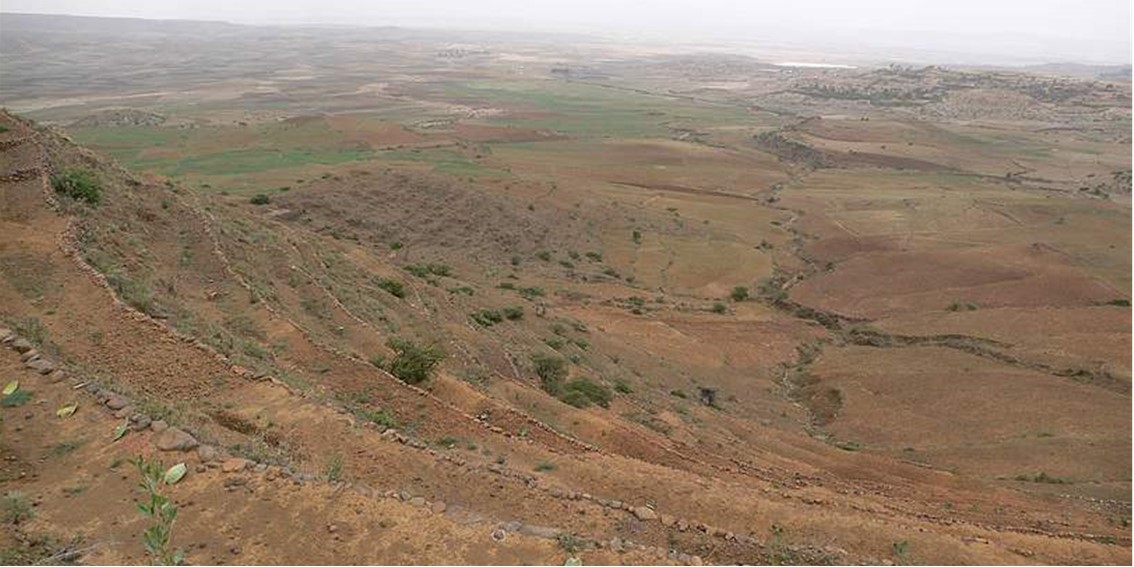30. June 2016

In Ethiopia, one Consortium project places gender and capacity building at the nucleus of its interventions and promotes Integrated Water Resources Management (IWRM) alongside its WASH promotion. At project level, basic principles of IWRM – mainly equitable and efficient management and use of water – has been fully translated into action in one of the Gender WASH model villages. This has been achieved through awareness creation, ownership building, implementation of the 3R concept (recharge, retention and reuse) and considering climate change. Experience sharing visits between communities and in Gender WASH model villages has further reinforced it.
At Mehal Keratit village, the community with the support of the project constructed a hand dug well and started accessing clean and adequate water in May 2016. The easier access to water allowed the sensitized community to raise seedlings at a nursery site established by the office of agriculture and to plant 1000 of those seedlings on a communal land and around the water schemes. The planted seedlings cut the run-off from the hillsides and increase the percolation rate to replenish the ground water from where the community pumps its water for consumption.
Looking at this practice, the neighboring kebele (Village) has raised seedlings and planted them on 1 ha of land. The kebele is planning to elevate the scale of the plantation into a park and name it after the project.
This approach is easily scalable if demand is created and training provided to the community and local government partners.